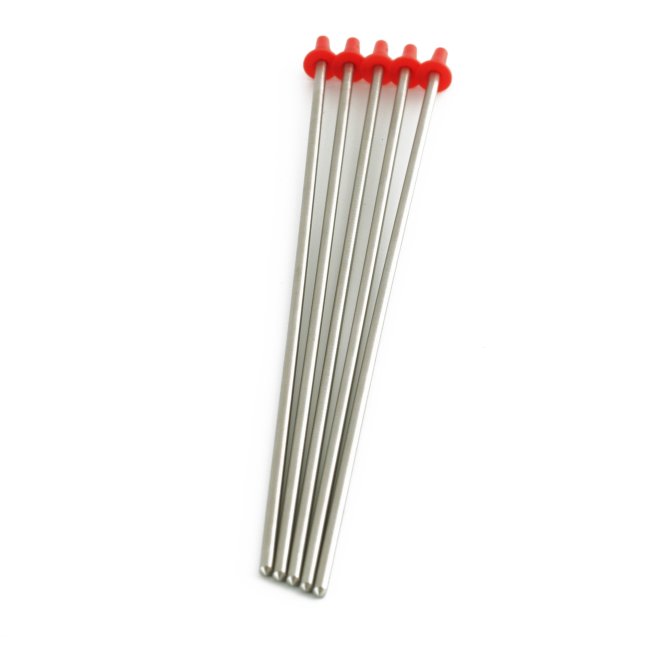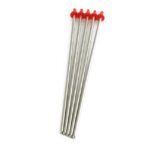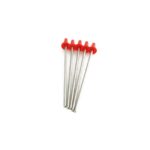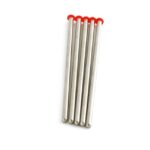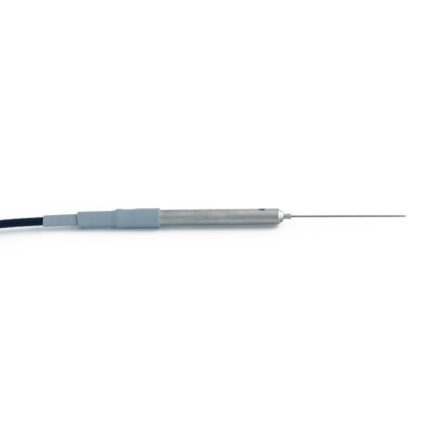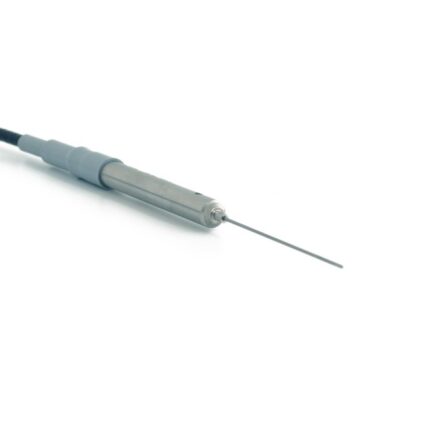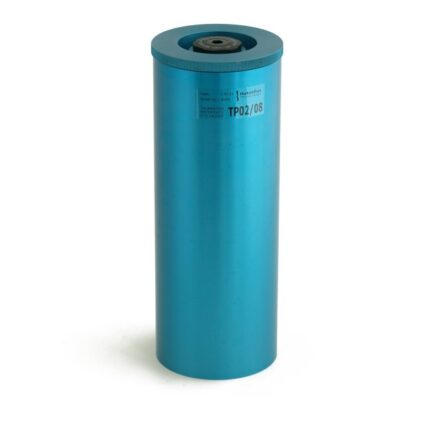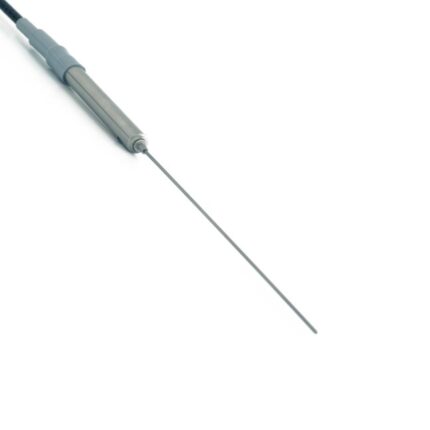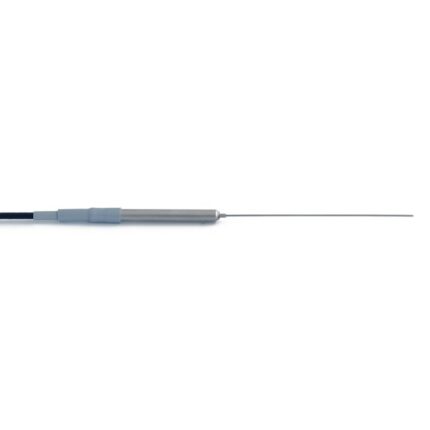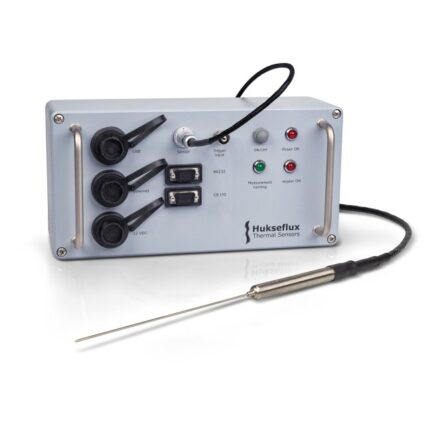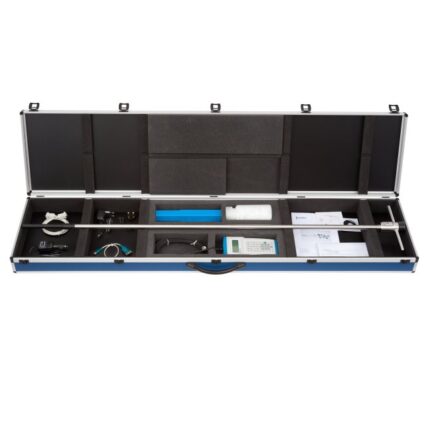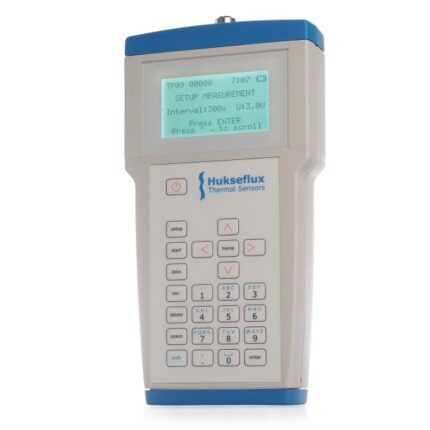Specifications
GT series
| Test method | ASTM D 5334-00 and D 5930-9, IEEE Std 442-1981 |
| Delivery | sets of 5 tubes, including caps |
| Material | stainless steel |
| Needle ends | welded |
| Protection tube with cap | IP67 |
Downloads
(PDF, 162.86 KB)
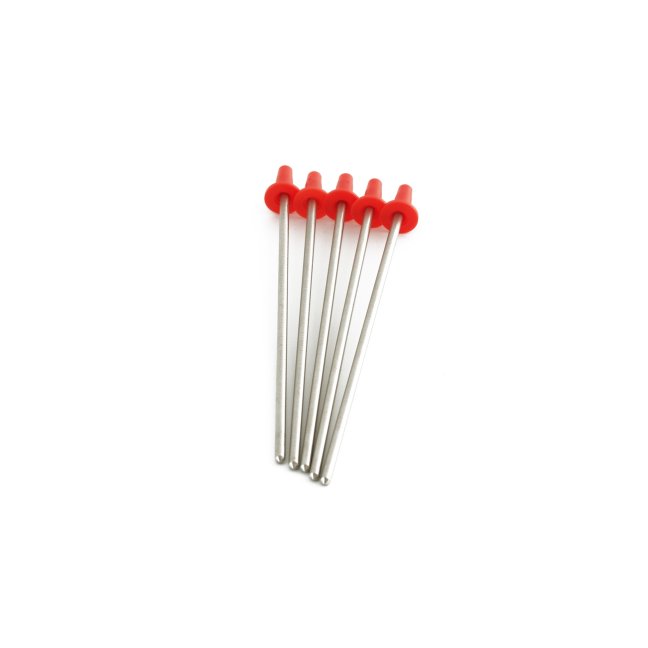
None-Steady-State Probes are used to determine the thermal conductivity of the surrounding medium. The method can applied in various substances such as sludges, fluids, foodstuff. The most frequest application however is in soils. A recurring problem is that insertion into hard soils, bentonites and cements is quite difficult. The main problem is that it is quite difficult to insert needles into these hard materials. The use of guiding tubes in many cases can solve this problem; The guiding tube should be inserted into the medium, and the needle can be inserted at a later stage.
Hukseflux is a leading supplier of Non-Steady-State Probes, and is the inventor of this guiding tube technology.
In case of bentonites and cement the guiding tubes are cast into the material and experiments can be carried out later. In case of hard soils, a typical approach is to pre-drill a hole, insert the guidig tube, compact the soil again, and perform a measurement. In case of dryout experiments guiding tubes are inserted into the samples, dryout can then take place at high temperature (the needle is not inserted).
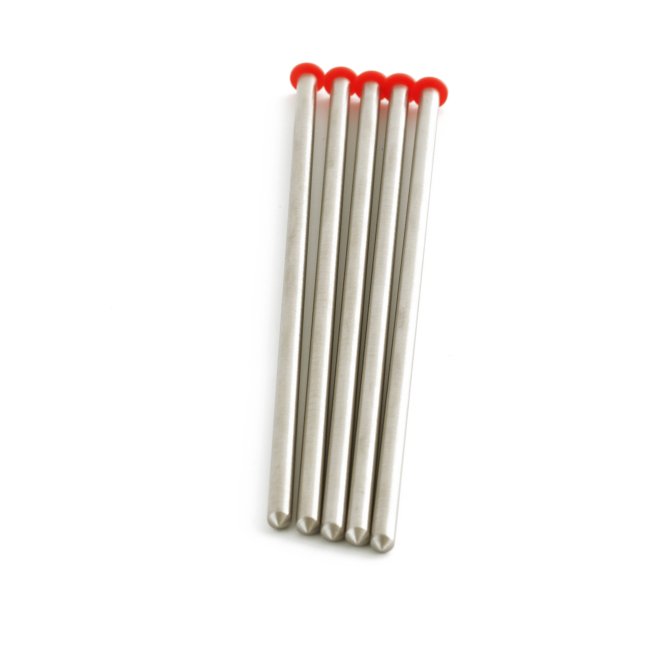
Suggested use
- studies of ocean sediments
- studies of small samples
- studies of high cost samples (uranium sludge)
Areas of Application
GT series
